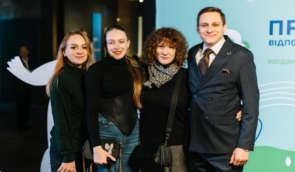Liberate Ukrainian women from Russian captivity: ZMINA holds event in Ankara
Human Rights Centre ZMINA, in cooperation with the Embassy of Ukraine in Türkiye, organized the event “Liberate Ukrainian women from Russian captivity” in Ankara on August 29. Human rights activists and relatives of civilian captives shared the terrible realities Ukrainian women are going through in Russian confinement and called on Türkiye to facilitate their release as soon as possible.
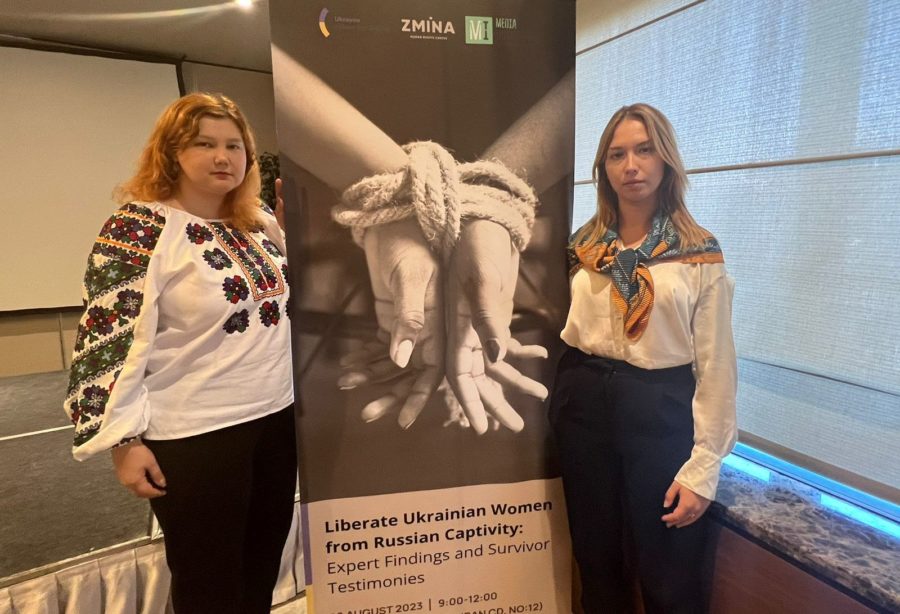 Natalia Okhotnikova and Tetiana Zhukova. Photo: ZMINA
Natalia Okhotnikova and Tetiana Zhukova. Photo: ZMINAAmbassador of Ukraine to Türkiye Vasyl Bodnar, Head of the EU Delegation to Türkiye Nikolaus Meyer-Landrut, and representative of the Ukrainian Parliament Commissioner for Human Rights Mykhailo Spasov were guests of honor and participants of the event.
Head of the EU Delegation Nikolaus Meyer-Landrut made opening remarks about the growth of autocratic governments in the world and noted that the EU is watching with pain the war crimes and destruction that Russia has brought to Ukraine: “We see the systematic destruction of Ukraine and its people by Russians. In an attempt to protect human rights, we must identify autocrats and war criminals and take a concrete and decisive stand against them.”
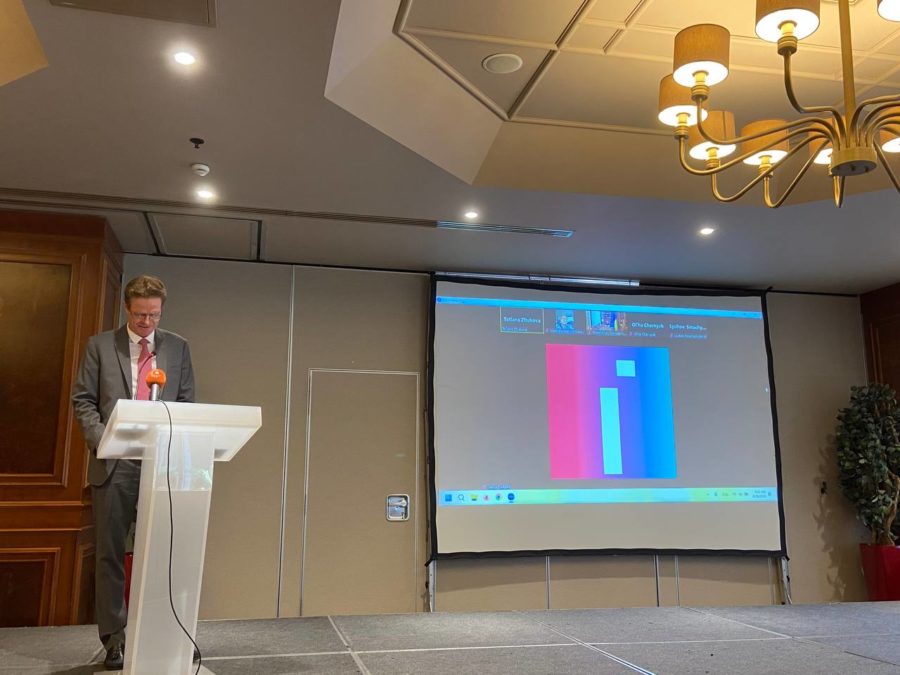 Head of the EU Delegation Nikolaus Meyer-Landrut. Photo: ZMINA
Head of the EU Delegation Nikolaus Meyer-Landrut. Photo: ZMINAAmbassador of Ukraine to Türkiye Vasyl Bodnar emphasized that Ukraine was experiencing brutal and blatant disregard for human rights due to Russia’s war crimes: “Currently, more than 25,000 Ukrainian civilians are imprisoned by Russia, although the real figure may be higher. As of the end of June 2023, there were 126 women in Russian prisons, including 46 servicewomen and 80 civilians. In addition, human rights organizations report that about 200 Ukrainian political prisoners were held in occupied Crimea and the Russian Federation as of August 2023.”
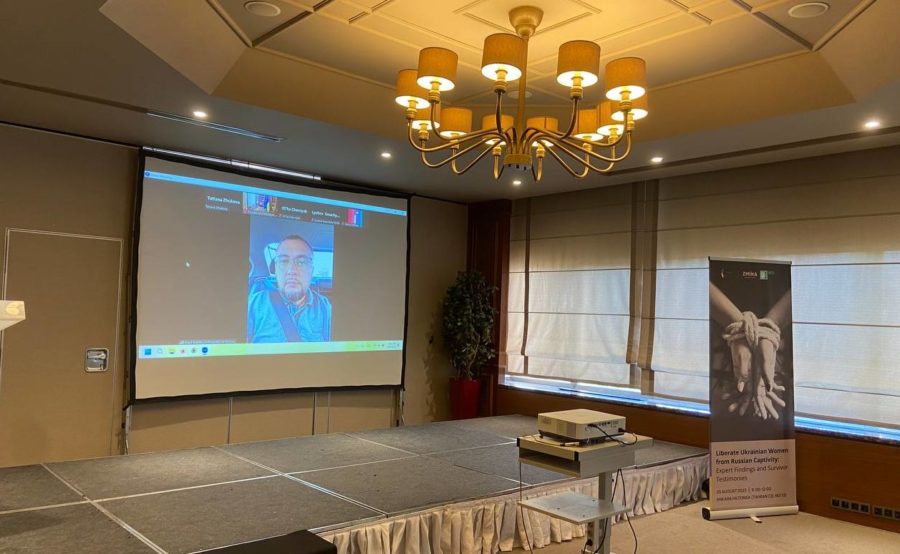 Ambassador of Ukraine to Türkiye Vasyl Bodnar. Photo: ZMINA
Ambassador of Ukraine to Türkiye Vasyl Bodnar. Photo: ZMINARepresentative of Ukraine’s Ombudsman Mykhailo Spasov added that “Ukrainian political prisoners and captives do not receive proper medical care.” He mentioned the fate of Crimean activist and citizen journalist Iryna Danylovych who was sentenced to almost seven years in prison in occupied Crimea on fake charges: “Iryna is not provided with any medical care, which is why her illness is progressing.”
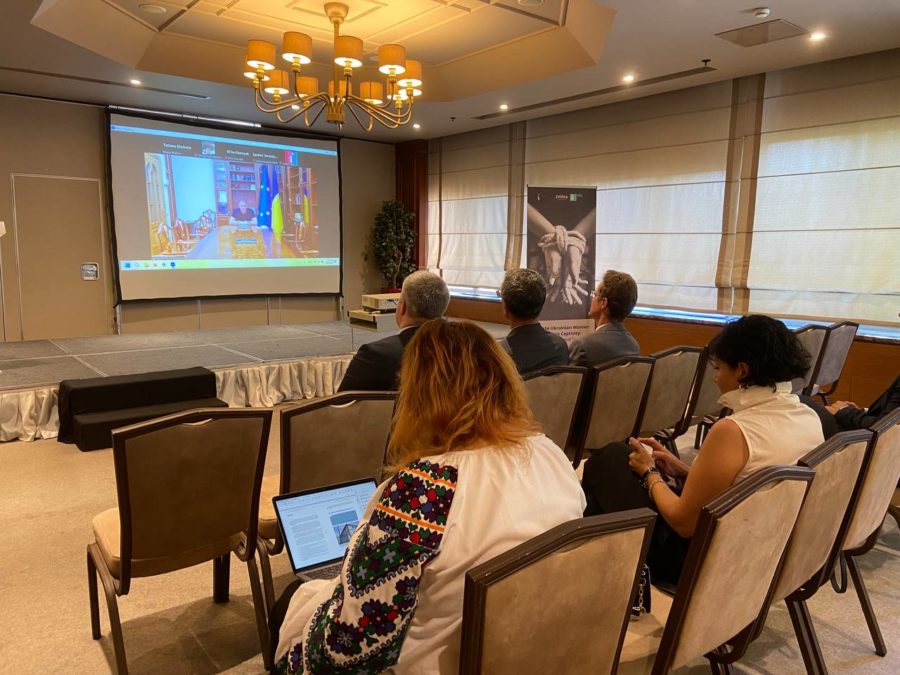 Mykhailo Spasov, representative of the Ukrainian Parliament Commissioner for Human Rights. Photo: ZMINA
Mykhailo Spasov, representative of the Ukrainian Parliament Commissioner for Human Rights. Photo: ZMINAIn addition, ZMINA’s legal advisor Natalia Okhotnikova, analyst at Media Initiative for Human Rights Liubov Smachylo, representative of the Women’s Initiatives for Gender Justice Carolyn Edgerton, former prisoner who spent 280 days in Russian captivity Olha Cherniak, and Natalia Checheliuk, mother of political prisoner Mariana Checheliuk, joined the discussion.
The event participants discussed the issue of systematic war crimes, crimes against humanity and gross violation of human rights committed by Russia in the temporarily occupied territories of Ukraine, including unlawful detention and torture of civilian women, as well as considered legal mechanisms to hold criminals to account and return civilians.
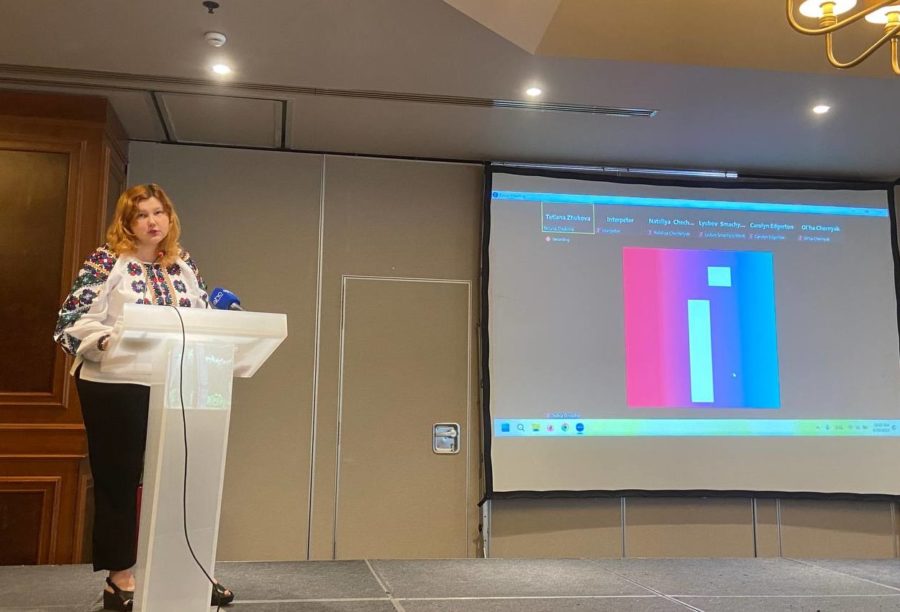 Natalia Okhotnikova. Photo: ZMINA
Natalia Okhotnikova. Photo: ZMINAZMINA’s legal advisor Natalia Okhotnikova presented the report “Women’s cells of Kherson torture chamber: analytical report based on the testimonies of detainees” and noted: “During the occupation of Kherson, more than 200 people, including at least thirty women, were held in temporary detention centers. The reasons for their detention were different: sometimes detention was targeted, in particular, of female employees of law enforcement agencies of Ukraine, as well as representatives or relatives of members of the Armed Forces of Ukraine or the resistance movement. There was a case when a woman was detained for several days simply because she did not greet the Russian soldiers.”
Okhotnikova added: “The detained women were subjected to torture and held in inadequate conditions of detention – there was a lack of personal space, inadequate hygienic and sanitary conditions, insufficient lighting and ventilation, limited access to shower, limited or no daily walks, impossibility of seclusion while using the toilet, poor or irregular nutrition.”
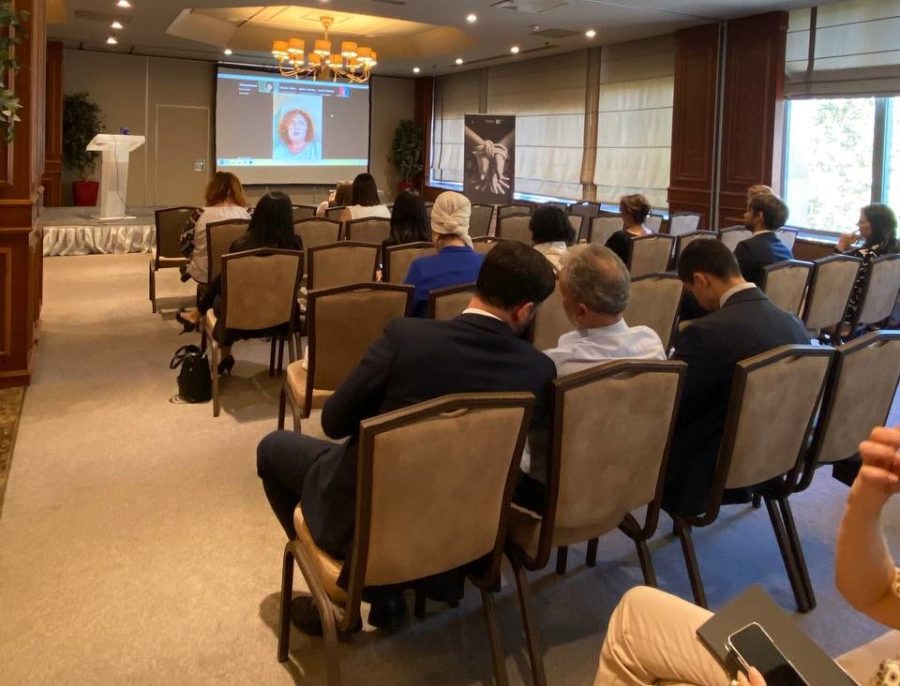 Olha Cherniak. Photo: ZMINA
Olha Cherniak. Photo: ZMINAOlha Cherniak, who was held captive by the Russians for 280 days, said: “At first, I was held in Kherson. There were six to eight women with me there. We were denied access to fresh air and sleep, food was inedible. In addition, I was given electric shocks, after which I had several heart attacks, but nobody called a doctor.”
Cherniak said that the occupiers had forced people to shout pro-Russian slogans and praise invader Putin: “They lined up the prisoners once or twice a day, forced them to say, ‘Long live Putin, long live Russia.’ If we refused, they would beat us.”
After 280 days in Russian captivity, Olha Cherniak was “lucky” and was released. “I returned home after release. My health deteriorated because of what I experienced in captivity: I had serious problems with nervous system, teeth, and especially my heart,” she shared.
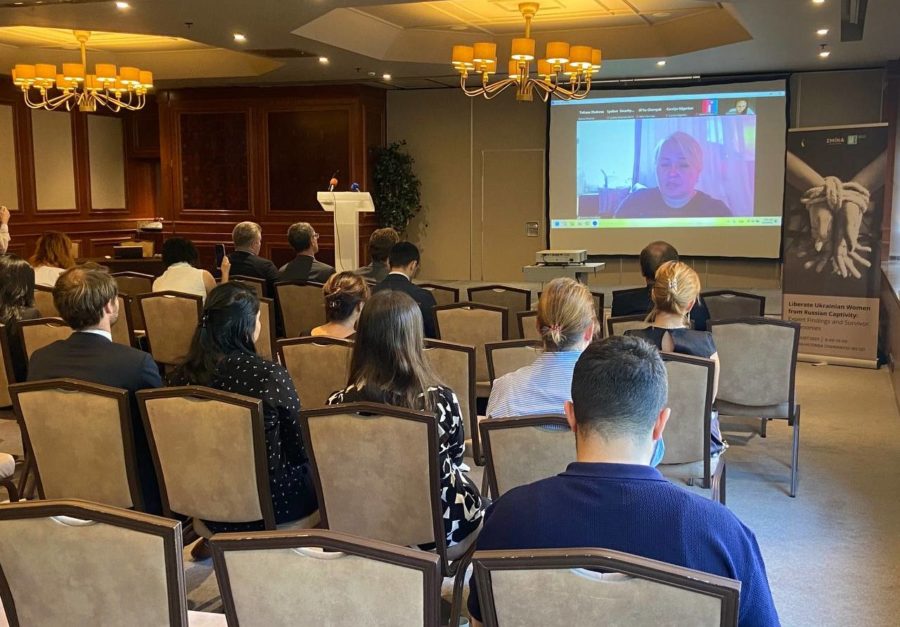 Natalia Checheliuk. Photo: ZMINA
Natalia Checheliuk. Photo: ZMINANatalia Checheliuk, the mother of Mariana Checheliuk, a 22-year-old girl from Mariupol who has been in Russian captivity for 16 months, also addressed the audience. She told the participants about filtration, abuse, the terrorist attack in Olenivka and unbearable conditions of stay:
“My daughter needs medical help, she is very exhausted, has severe pains in her knees, lower back and legs. I am asking everyone present here today, I am asking the whole world, all caring people, to help our common grief!” the captive’s mother addressed, “Dear President Erdoğan, dear representatives of the countries, I am asking on behalf of all mothers, we pray for all Ukrainian children, prisoners of war, civilians, wounded and sick. Captivity is not a place for our children! Not a place for the heroes who defended our city. I am asking you, please do something, hear us, help us, free our tormented children.”
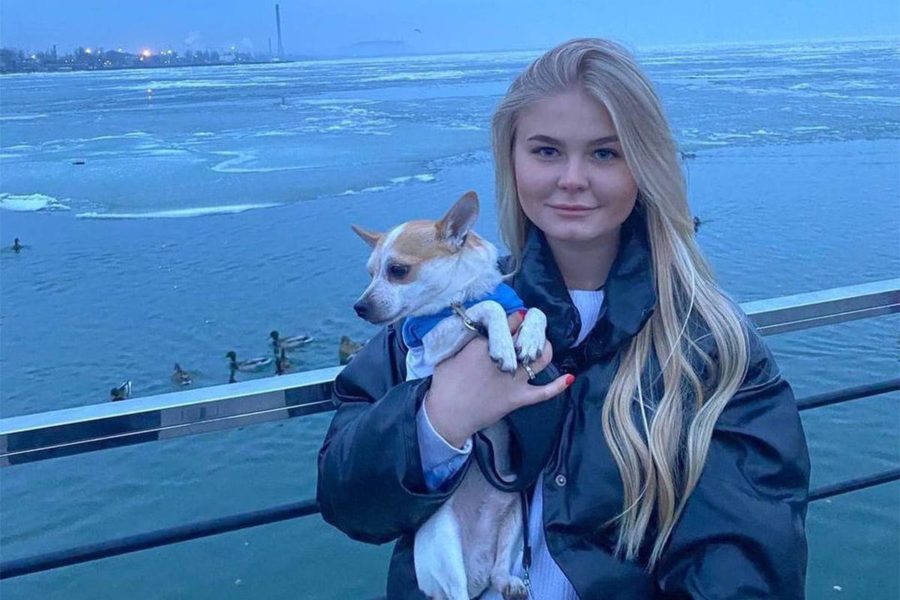 Photo from open sources: Maryana Checheliuk
Photo from open sources: Maryana ChecheliukThe discussion participants pointed out the common duty of the civilized world to take part in the rescue of captive Ukrainian women, who are held by the Russian side in violation of international law, and also called on the government of the Republic of Türkiye to play a leading role in this process.
The representative of the Women’s Initiative for Gender Justice Caroline Edgerton emphasized the need to use a victim-centred approach, as well as the importance of bringing the skills of Ukrainians in line with international standards in the field of gathering evidence of war crimes.
 Representative of the Women’s Initiative for Gender Justice Caroline Edgerton
Representative of the Women’s Initiative for Gender Justice Caroline EdgertonLiubov Smachylo from the Media Initiative for Human Rights said that a major problem was the lack of a mechanism that would ensure the return of civilian captives: “These persons are illegally held in prisons, detention centers and other places of detention in the temporarily occupied territories of Ukraine and the Russian Federation without any legal grounds. Their confinement in these institutions violates international humanitarian law and international human rights law. However, there is no effective mechanism for returning these persons to Ukraine.”
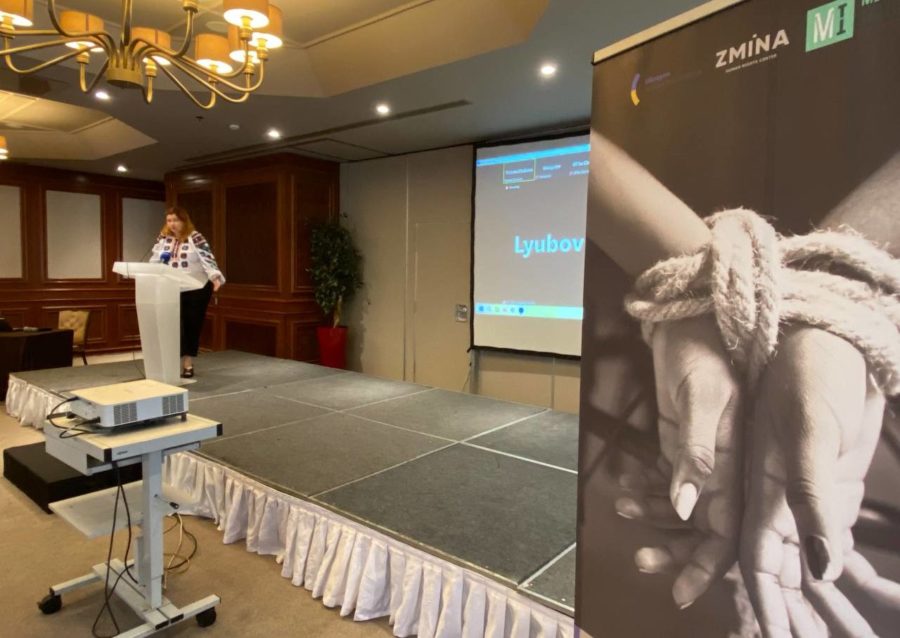
“We see great hope and prospect in that Türkiye has joined this process. Since diplomatic relations between Ukraine and Russia have been officially severed for objective reasons, the government of Ukraine cannot directly address the Russian government with demands for the return of civilian women. That is why we address the government of Türkiye, given their positive experience,” Natalia Okhotnikova summed up.
If you have found a spelling error, please, notify us by selecting that text and pressing Ctrl+Enter.




